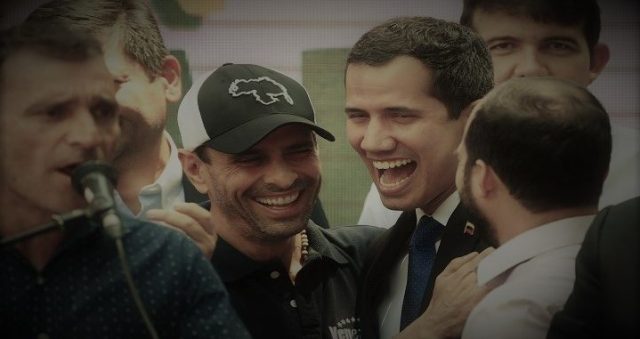
In this extremely convoluted week in Venezuelan politics, we share part of the analysis of our political risk team, and our view on where things may be going.
By Caracas Chronicles
In a November 2019 Political Risk Report, we shared our view for 2020: “The most likely scenario is a rerun of 2018 in 2020, with the government holding a flawed election in which only the most moderate parts of the opposition will take part.” Later, in January 2020, we reported that Henrique Capriles “was planning to raise his profile in 2020 and take a critical stance against Guaidó within the opposition,” and that, with his well-known pro-elections stance at the time, he had begun “raising the question of what the opposition should do about the upcoming parliamentary elections.” A month later, we reported that one option under consideration by Juan Guaidó’s team if the “government holds a parliamentary election without guarantees is extending the term of the current AN beyond 2020, keeping the current roster of lawmakers.” These views and reports have been playing out in the last months, and this week it all came to a head.
In 2020, like in 2018, the government wants to lure a small, moderate faction of the opposition into taking part in an election entirely on their terms, while discouraging the more popular—and radical, in the government’s view—factions from taking part by refusing to offer minimally fair electoral conditions, and outright block others from running by barring inconvenient candidates and parties from the ballot. The strategy worked to perfection in 2018—even if it ended putting the government in dire straits in 2019—and it appears to be working even better in 2020.
Back in 2018, Henri Falcón agreed to take part after the government committed in writing to fairer electoral conditions, to refrain from using public resources in the election and from proletizing in polling centers, and to allow international observers. By the time the election was done with, the government had broken all of its commitments. Last week the government told the European Union and the United Nations Secretary General that it had agreed to the same package with members of the opposition: electoral conditions, no advantageous use of public resources, no “PSUV red spots” in polling centers and international observers.
These views and reports have been playing out in the last months, and this week it all came to a head.
This time around, with Falcón on board again, they’ve offered the same package to Henrique Capriles, the two-time presidential candidate of the opposition who publicly broke ranks with the G4 and the caretaker government led by Juan Guaidó this week. Capriles had taken a back seat in the opposition in the past two years, as he doesn’t agree with the path charted by Guaidó and Leopoldo López—the latter, once his ally, then his friendly rival, and now his adversary. This week he announced that he would be taking part in the election, breaking with most of the G4 parties: Acción Democrática, Un Nuevo Tiempo, Voluntad Popular, and his own party, Primero Justicia, where he still holds influence within the national leadership structure and has many followers among the grassroots.
…
Read more: Caracas Chronicles – Maduro Enjoys the Luxury of Reusing a Trap
…

